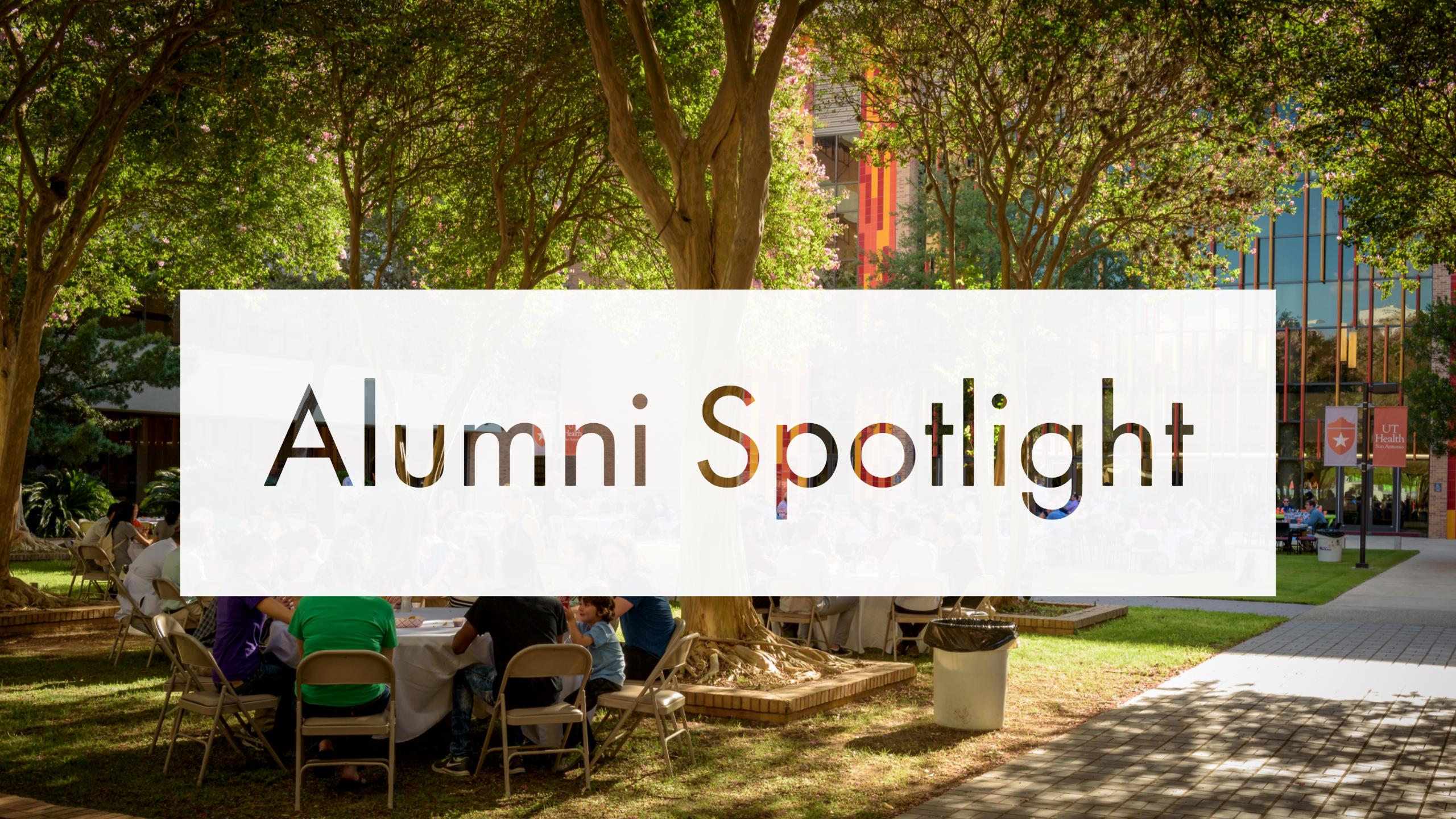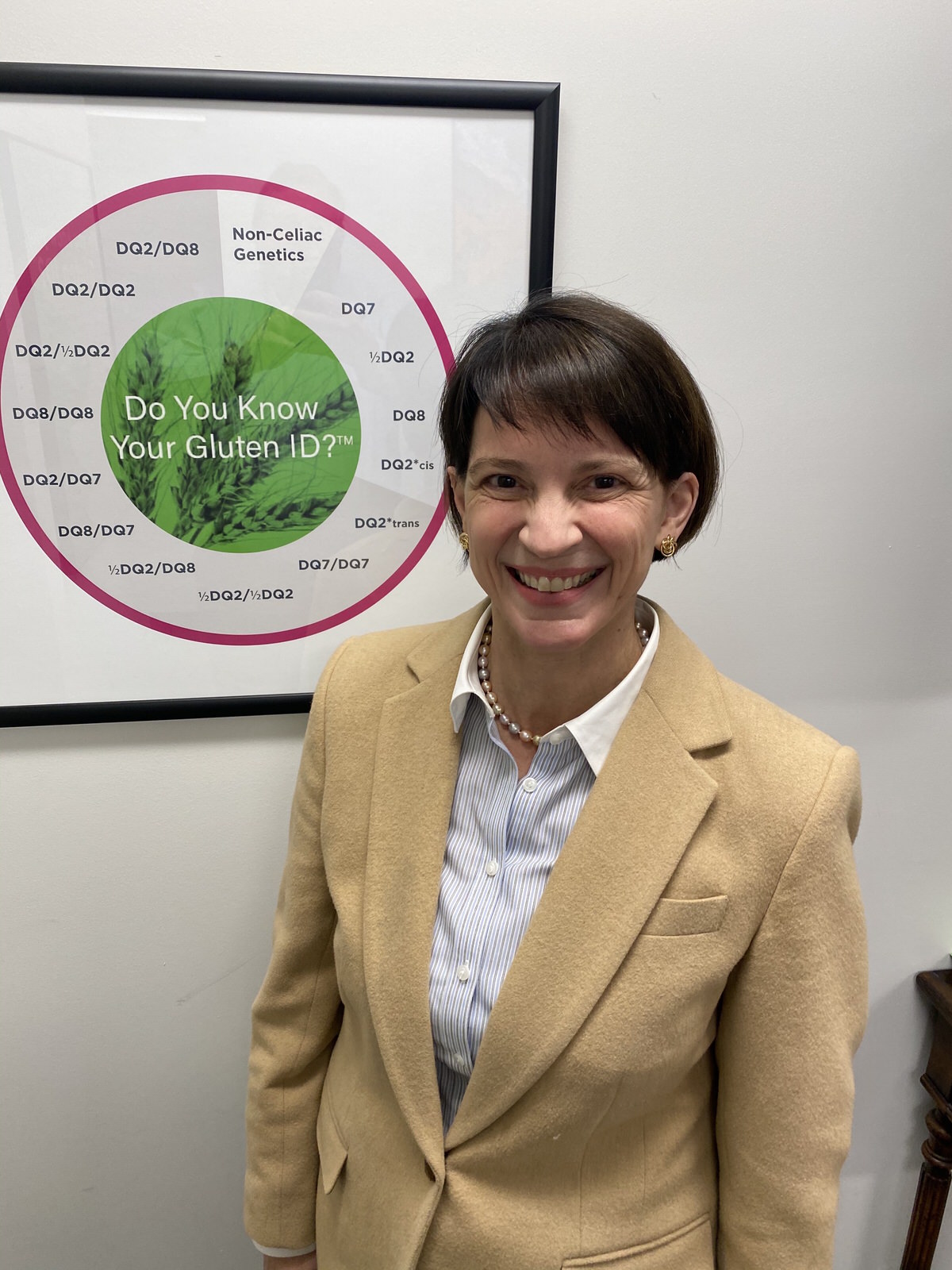Alumni Spotlight: Shelly Gunn, M.D., Ph.D., Genomic Pathologist at Targeted Genomics

 When did you first become interested in science?
When did you first become interested in science?
I graduated from Trinity University with a music degree in 1980, attended Peabody Conservatory of Music in Baltimore, and was working as a piano teacher in 1988 when our infant son was diagnosed with retinoblastoma (RB). At the time I had never heard of pediatric retinal tumors, but came to learn that the existence of an RB tumor suppressor gene was correctly predicted over a decade earlier by AG Knudson in his “second hit theory” publication (PNAS, 1971:68). Cloning of the actual RB1 gene had just been reported the year before our son was born, by Fung and colleagues (Science, 1987:236.) Fortuitously, our son was successfully treated by the renowned pediatric ophthalmologist, Dr. Robert Ellsworth at Cornell Medical Center in New York City. Dr. Ellsworth’s Reese-Ellsworth classification system is used to this day for RB tumor staging. So, I became interested in science and the nascent field of molecular genetics through the brilliant doctors and scientists who helped us during my son’s illness. I am happy to say he now works with me developing direct to consumer (DTC) genetic assays for health and wellness applications through our company, Targeted Genomics.
Why did you pick The University of Texas Health Science Center at San Antonio and your program and what year did you graduate?
I decided to go to medical school after returning to San Antonio after spending over a year in New York where our son was treated for RB. I attended San Antonio College for pre-med classes and was accepted to The University of Texas Health Science Center of San Antonio Medical School (now called Long School of Medicine) in 1996. The dual M.D./Ph.D. degree had just become an option and a couple of people in my medical school class were pursuing both degrees so I decided to do the same. I found my brilliant mentor, Dr. Robin Leach, in the Department of Cellular and Structural Biology. She taught me everything I know about molecular genetics, and to this day I still have the same thrill of discovery when learning about the genetic basis of disease through the study of germline and somatic mutations.
Tell me more about your career path.
After graduating from the medical school and Graduate School of Biomedical Sciences in 2002, I did a pathology residency also at UT Health San Antonio’s medical school and served on the faculty as assistant professor. In 2006, I accepted the medical director position at Combimatrix Molecular Diagnostics laboratory in Orange County, CA. I have worked for molecular labs in Orange County ever since and currently am the medical director for ResearchDx/PacificDx, a CAP/CLIA certified lab specializing in next generation sequencing (NGS) in Irvine, CA. My San Antonio home base is the Targeted Genomics office at Precision Pathology Services where we are developing a DNA-based DTC genetic screening test for celiac disease risk.
Tell me about your current career, what do you do?
I work as a laboratory medical director and a genomic pathologist in San Antonio and Irvine, CA.
What is a day like in your job?
Every day is different and I spend a lot of time on airplanes! As part of my work with ResearchDx/PacificDx in Irvine– I meet with our lab team, interpret molecular test results and do laboratory consulting for our worldwide clients. It has been very rewarding to share our experiences with foreign laboratories seeking to meet the same CAP/CLIA accreditation standards we follow in the United States. In San Antonio, I help educate pathologists, oncologists, and consumers about the constantly changing landscape of DNA-based biomarkers for targeted therapeutics, chronic disease, and wellness.
What is the most challenging part of your work?
The volume and ever changing interpretation of genetic data! Technology is now available in the clinical laboratory to routinely perform whole exome, even whole genome sequencing, of germline and tumor DNA from tissue and liquid biopsy plasma samples. However, less than 10 percent of this data can be used to make treatment decisions for patients so it often feels like searching for needles in a very large haystack in order to find data that can positively impact a patient’s disease course.
What is the most rewarding part of your work?
Identifying an actionable molecular biomarker and seeing a patient positively respond to a targeted therapeutic intervention.
What has been your proudest achievement?
Developing and launching Gluten ID, our DNA-based assay for testing celiac disease risk.
How did the education you get at The University of Texas Health Science Center at San Antonio prepare you?
I learned the fundamentals of medicine and how to approach all complicated molecular pathology questions creatively and rigorously using scientific evidence as my guide.
What are your favorite memories at UT Health San Antonio?
My graduation days at both the medical school and GSBS.
What would you tell a current student interested in your career? Any advice for life in general?
Follow your dreams because you never know where they will lead you.
What are some options that a graduate student can do to gain experience in your field now as a graduate student?
Find a mentor who is doing what you envision yourself doing after you graduate and spend as much time with that individual as you possibly can.
What do you like to do outside of work? Any hobbies?
When not working I am gardening, walking my two yellow labradors, cooking, reading, practicing hot yoga, swimming in the Guadalupe River, and last but not least I still love playing the piano!
